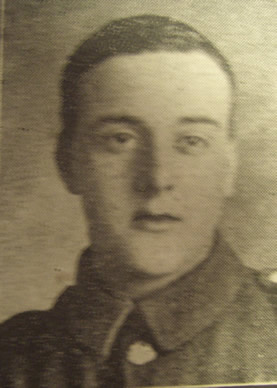1/5th Battalion, East Lancashire Regiment.
Awarded the Military Medal in the London Gazette of 23 February 1918.
Brotherton was a native of Padiham, Lancashire.
 The Burnley Express of 24 February 1918 reported:- PADIHAM MAN'S MILITARY MEDAL. On 24 November last we announced that Mrs. Brotherton of 50, Shakespeare Street, Padiham, had been officially notified that her son, Driver Tom Brotherton, of the East Lancashire Regiment (T.F.), had been seriously wounded in France, and was in a military hospital in Chester, suffering from wounds in the neck, head and back. This week the official announcement has been published that he has been awarded the Military Medal, for gallant conduct. Mrs. Brotherton, when asked about the matter yesterday, said her son had been told some time since that he would get the Military Medal, but he had not yet received it. He is now in hospital in Manchester making a slow recovery from his wounds. Driver Brotherton, who is 21 years of age, along with his father, joined the Army at the outbreak of the war, and after training was drafted to the East, sailing in the ill-fated "Royal Edward", fortunately for Driver Brotherton, he was taken ill previous to arriving at Alexandria, and was left at that port for hospital treatment. After some service in the desert he contracted malarial fever. On his recovery he had the good fortune to meet his father, whom he had not previously seen for two years. He had last been in France for eight months. Driver Brotherton is well known in Padiham, and previous to enlistment was identified with Cross Bank Wesleyan Sunday School and Chapel, where he is on the Roll of Honour. Rifleman John Thomas Brotherton, the father, is serving in the Rifle Brigade.
The Burnley Express of 24 February 1918 reported:- PADIHAM MAN'S MILITARY MEDAL. On 24 November last we announced that Mrs. Brotherton of 50, Shakespeare Street, Padiham, had been officially notified that her son, Driver Tom Brotherton, of the East Lancashire Regiment (T.F.), had been seriously wounded in France, and was in a military hospital in Chester, suffering from wounds in the neck, head and back. This week the official announcement has been published that he has been awarded the Military Medal, for gallant conduct. Mrs. Brotherton, when asked about the matter yesterday, said her son had been told some time since that he would get the Military Medal, but he had not yet received it. He is now in hospital in Manchester making a slow recovery from his wounds. Driver Brotherton, who is 21 years of age, along with his father, joined the Army at the outbreak of the war, and after training was drafted to the East, sailing in the ill-fated "Royal Edward", fortunately for Driver Brotherton, he was taken ill previous to arriving at Alexandria, and was left at that port for hospital treatment. After some service in the desert he contracted malarial fever. On his recovery he had the good fortune to meet his father, whom he had not previously seen for two years. He had last been in France for eight months. Driver Brotherton is well known in Padiham, and previous to enlistment was identified with Cross Bank Wesleyan Sunday School and Chapel, where he is on the Roll of Honour. Rifleman John Thomas Brotherton, the father, is serving in the Rifle Brigade.
The circumstances of the award are in the "History of the 42nd East Lancashire Division 1914-1918," by Fredrick P Gibbon, page 111. INCIDENTS AT NIEUPORT. "On 2 November Private T. Brotherton, 1/5th East Lanc's., while in charge of a limber taking rations up to the line, was wounded by a shell which dropped three yards to the rear of his vehicle. Although in great pain and under heavy shelling all the time, he coolly unhooked his mules, one of which had been injured, refusing attention for himself until he had done everything possible for his animals. He then had his wounds dressed, and obeyed the order to report to the nearest Field Dressing Station with the greatest reluctance, as he wished to return to the transport lines for another mule so he could carry on."